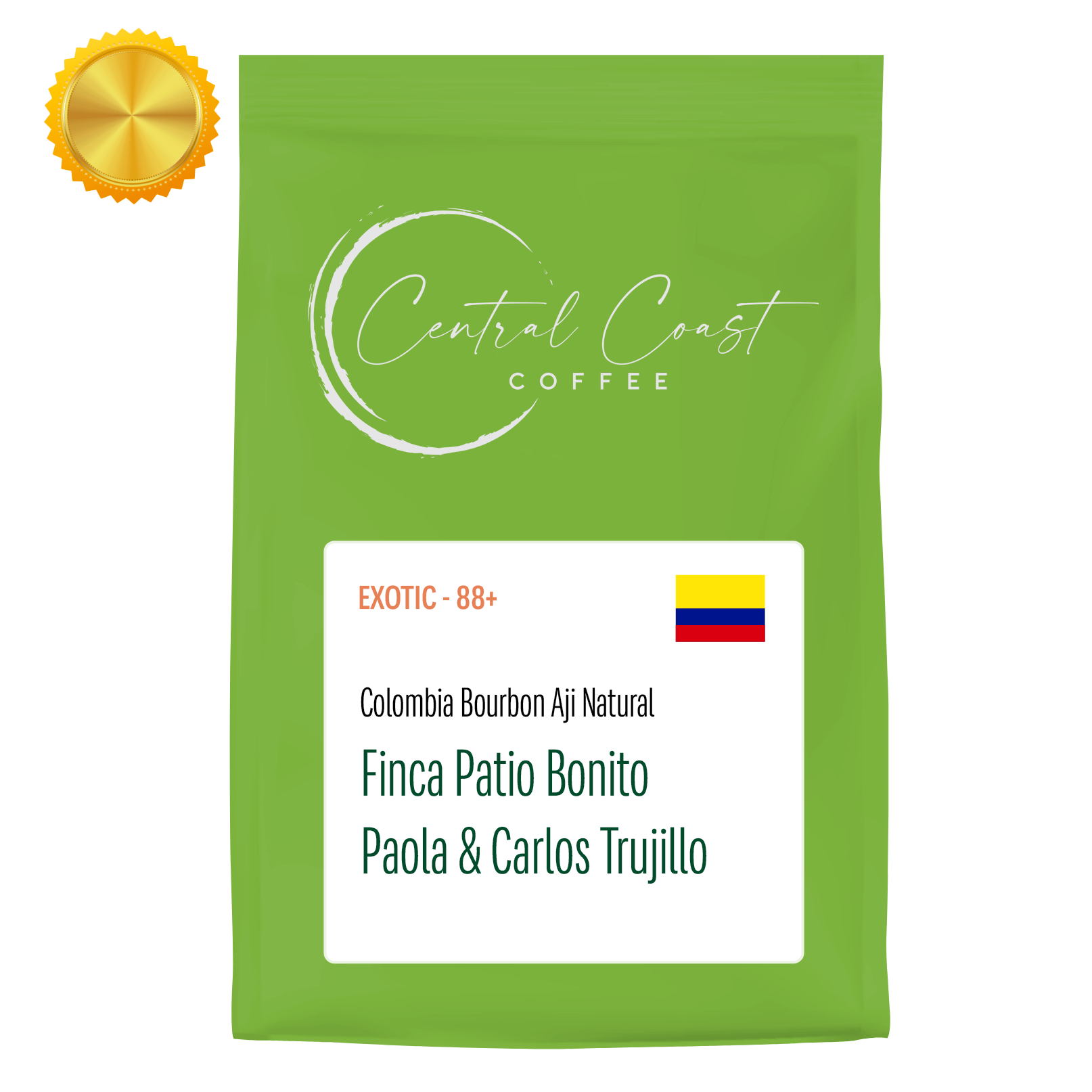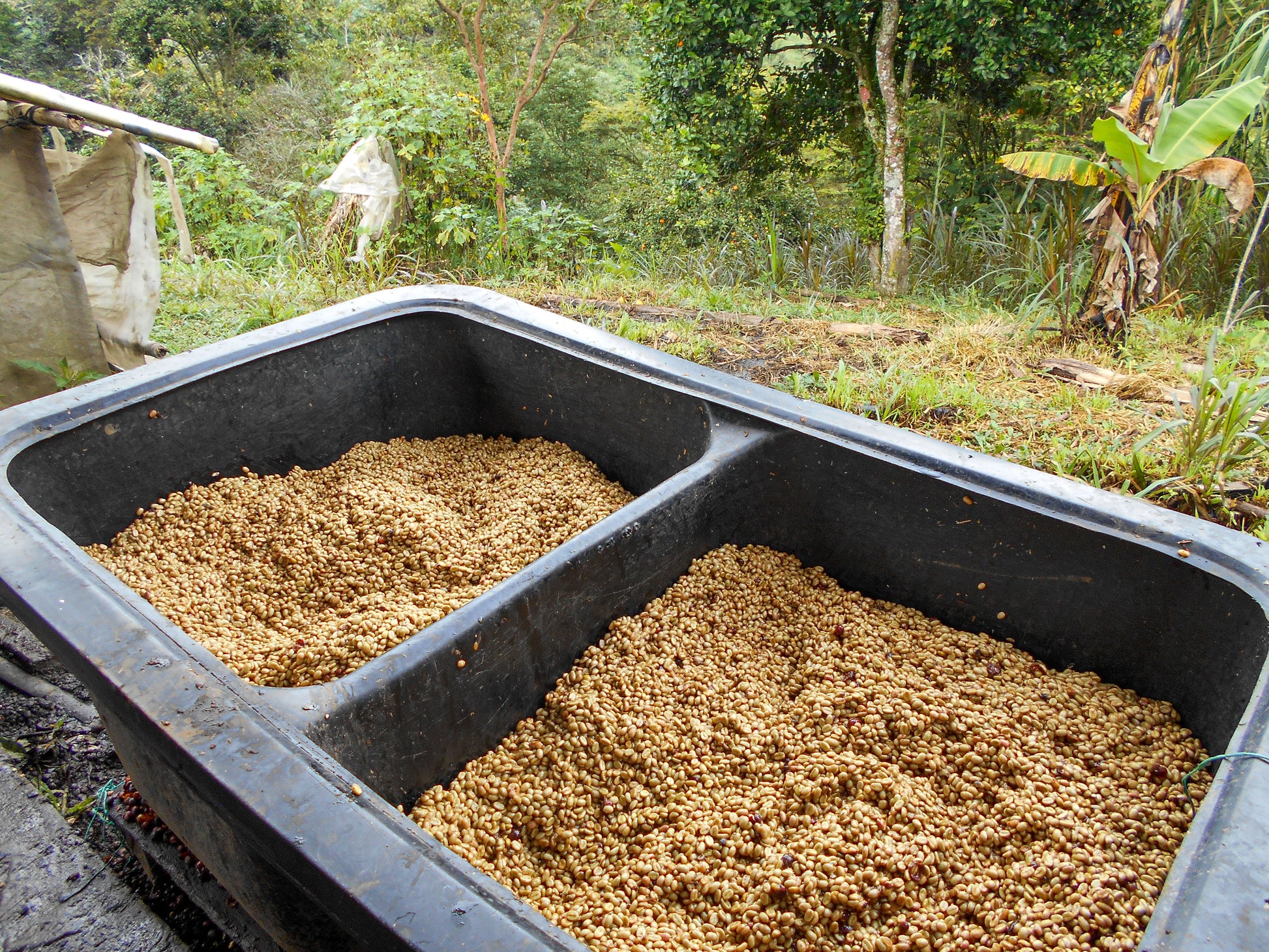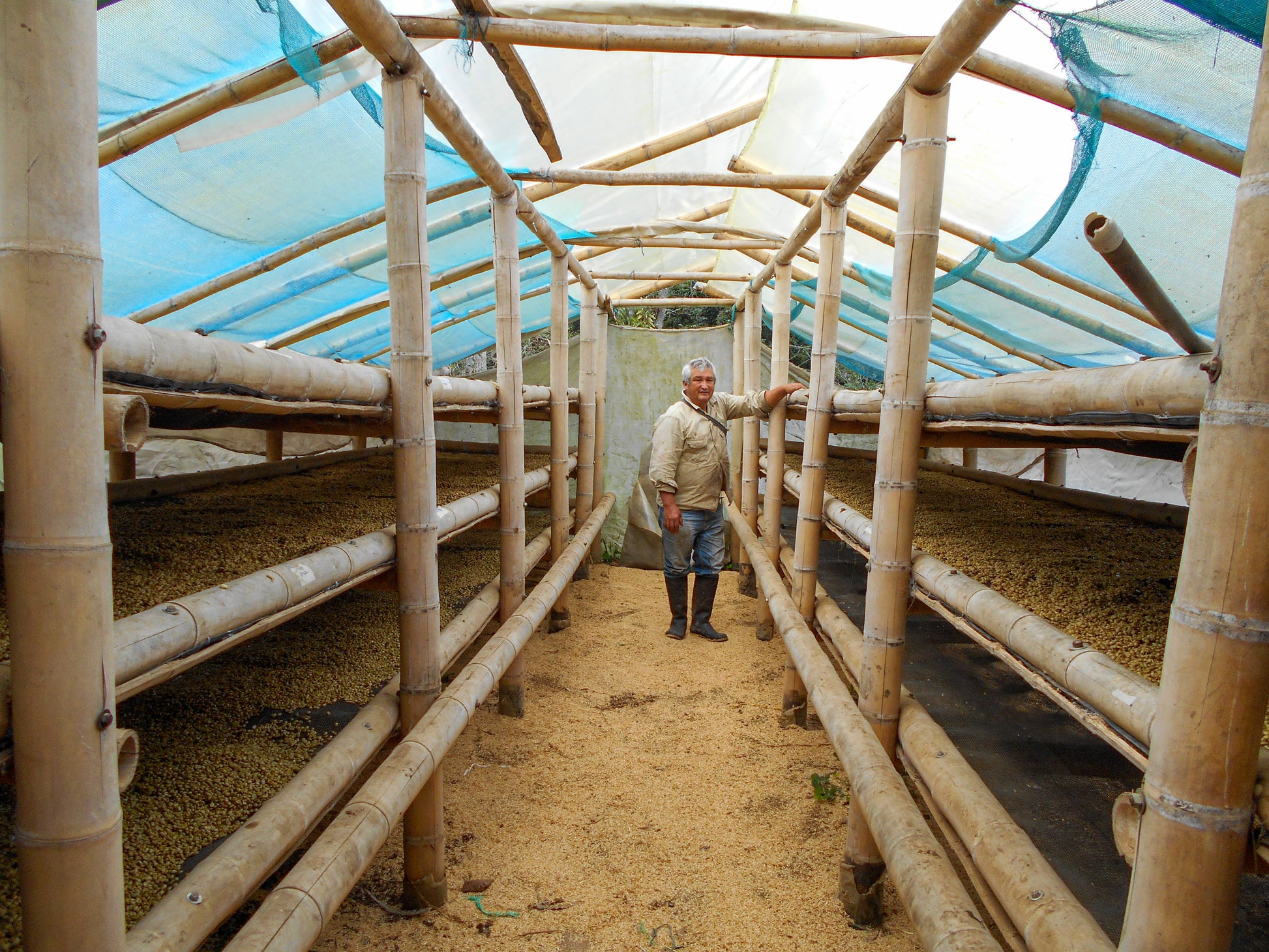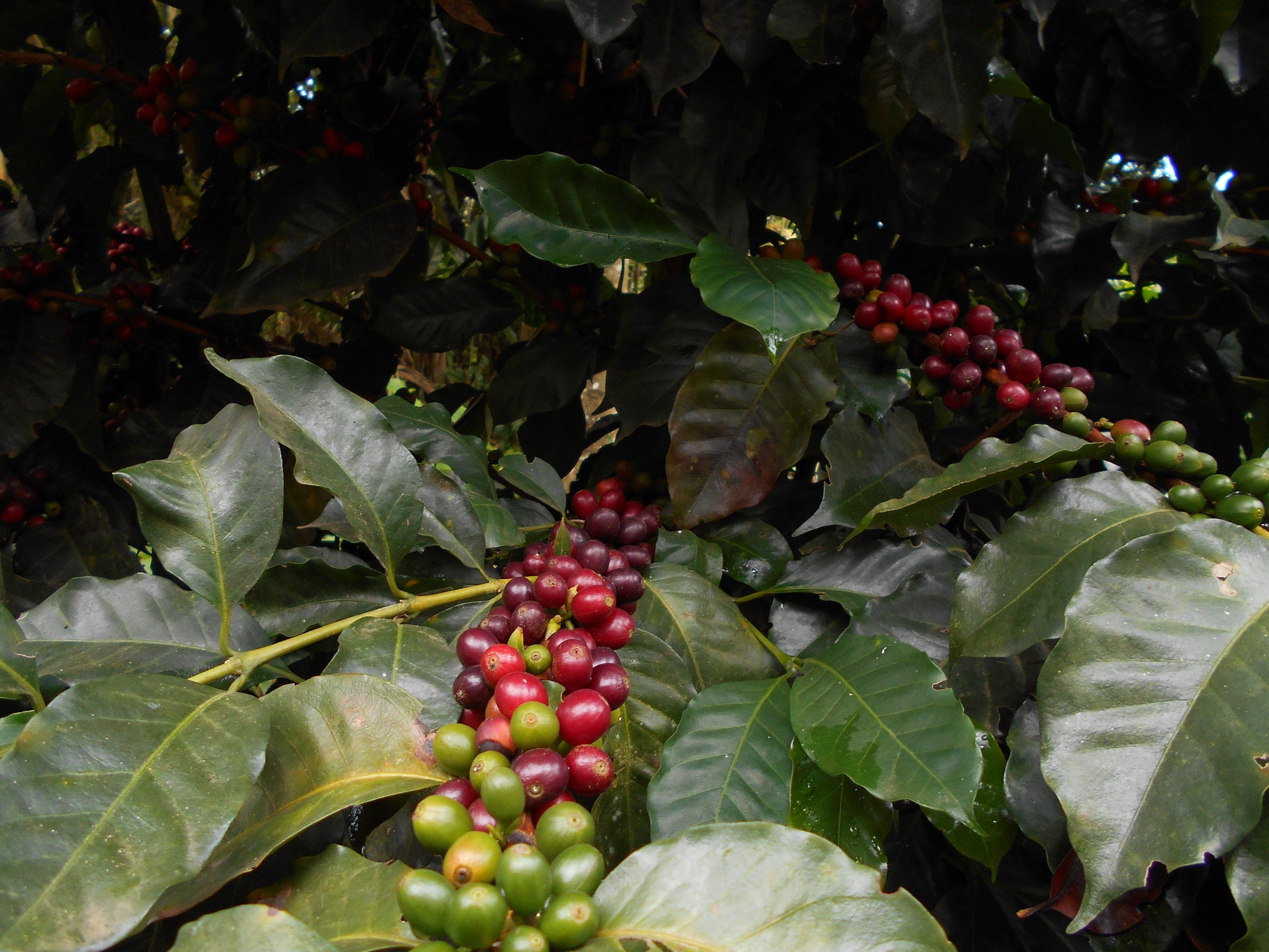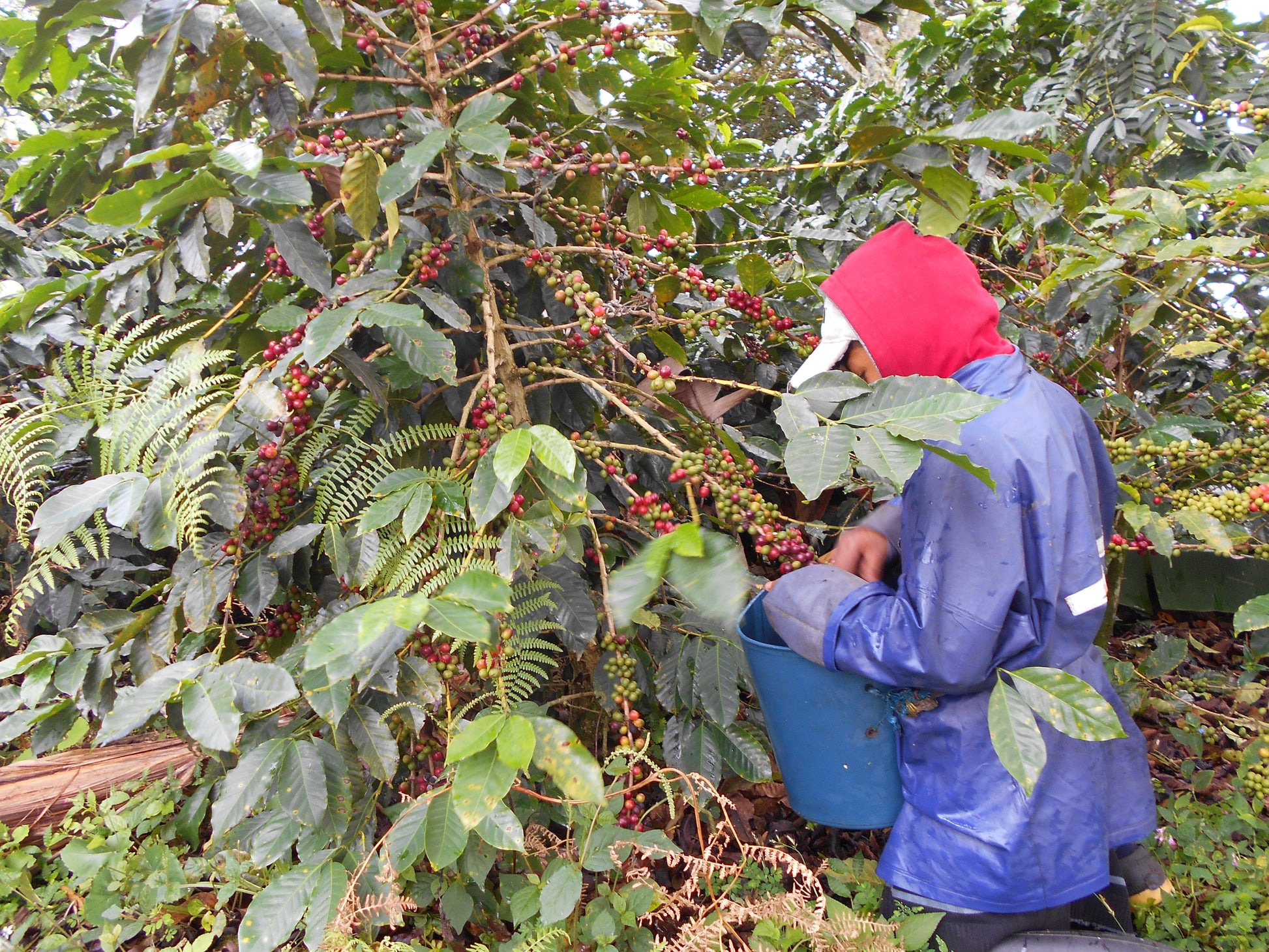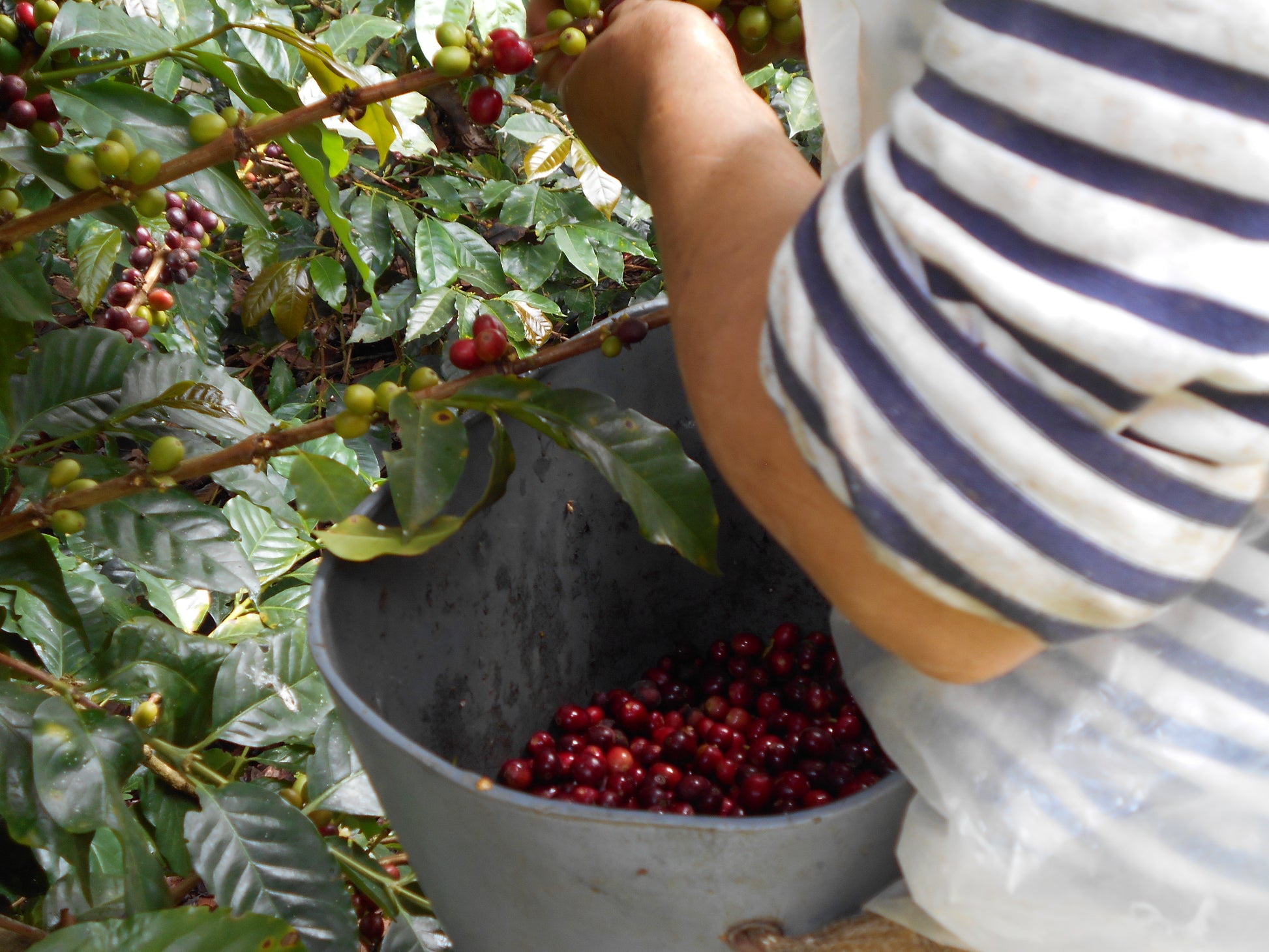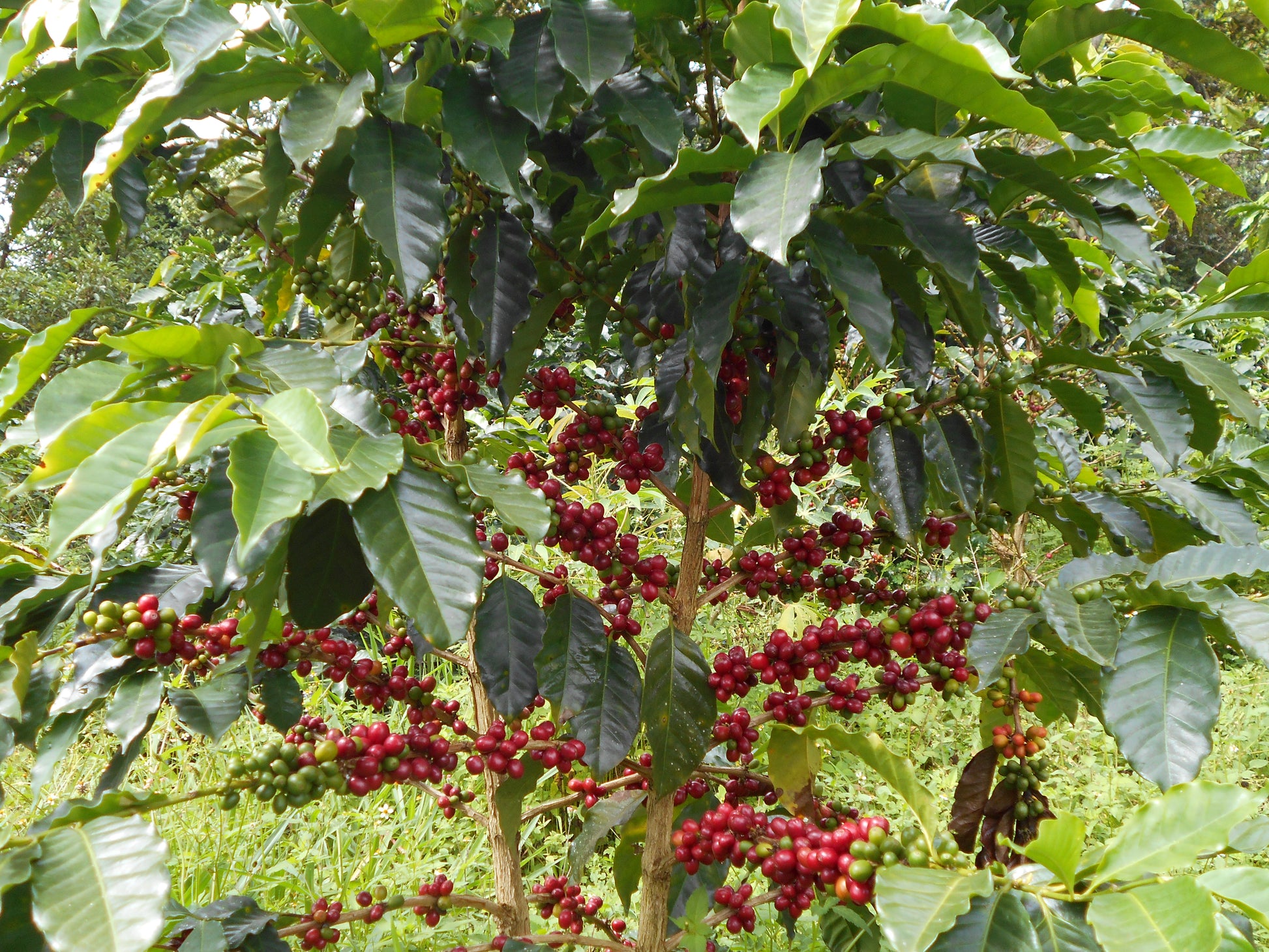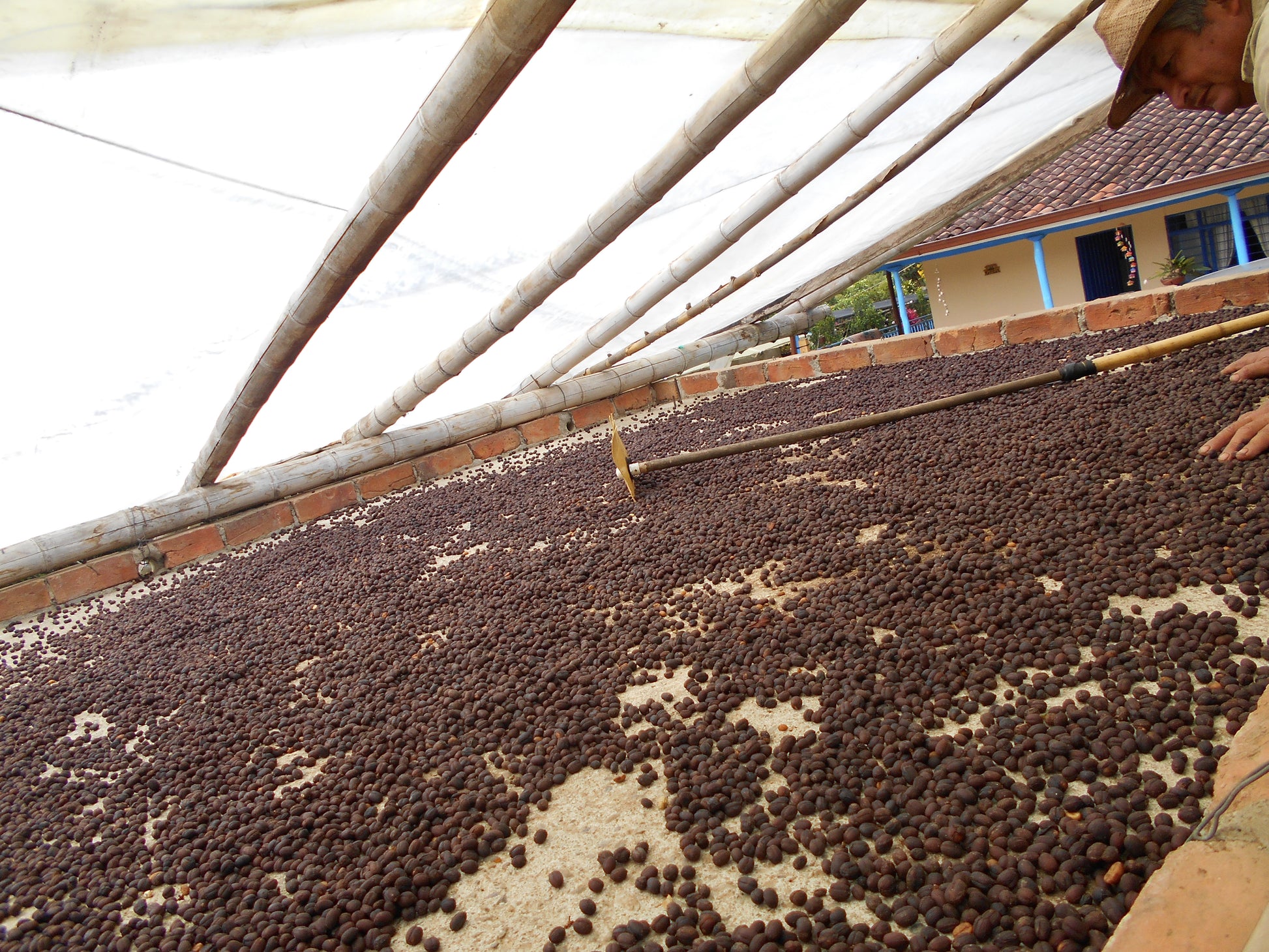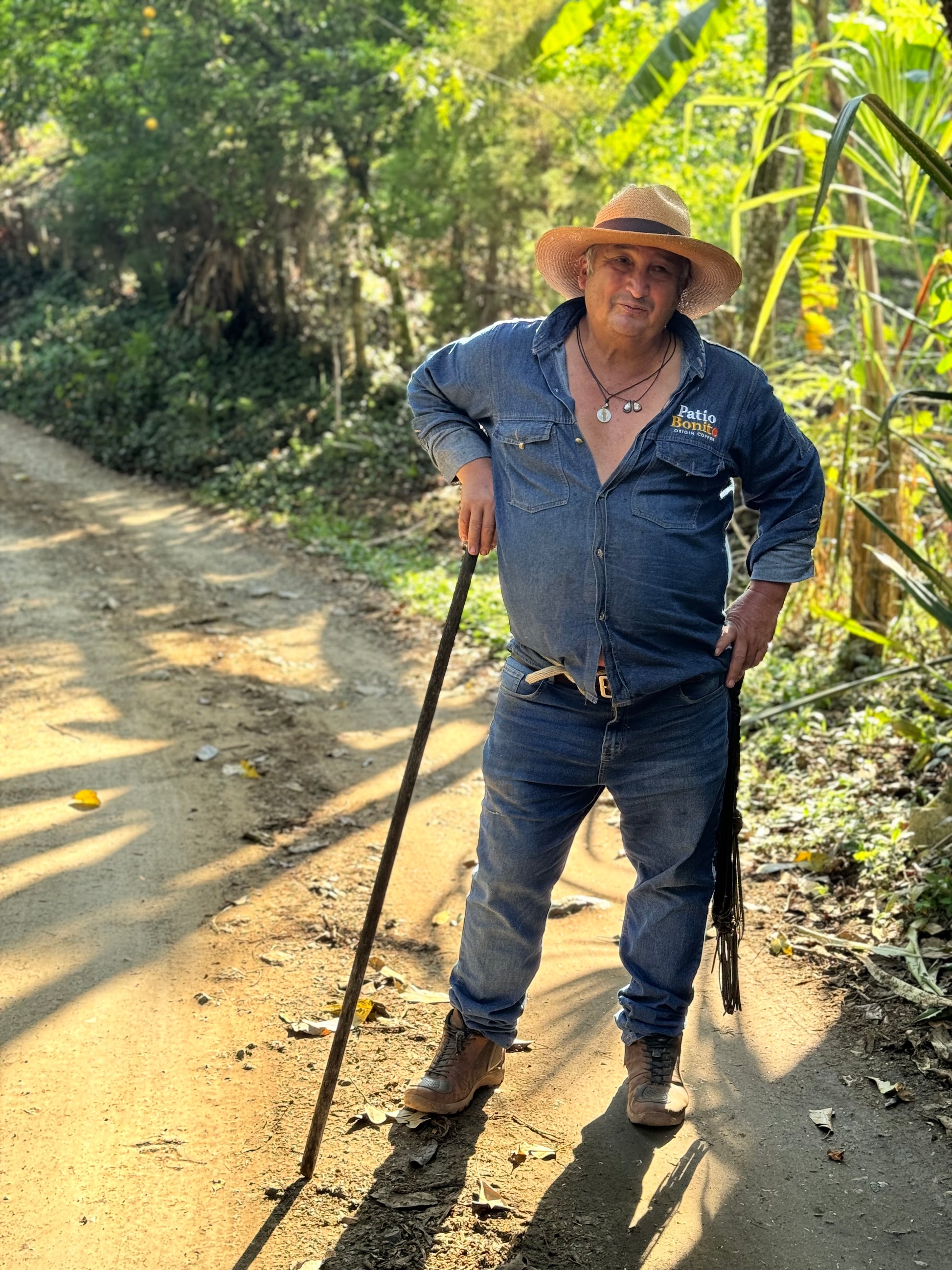








This coffee’s roasted in our filter style — meaning it’s designed to shine as black coffee rather than with milk. That doesn’t mean you have to brew it as a pour-over though. You can make it however you like — espresso, moka pot, AeroPress or anything in between. We simply roast it a little lighter to highlight the bean’s origin flavours giving you a cup that’s clean, vibrant and full of clarity.
Lighter roasting keeps more of the natural acidity and sweetness intact which makes for a beautifully expressive black coffee. This coffee is best enjoyed without milk as it’s too acidic and the flavours don’t pair well once milk is added.
If you prefer your milk coffee with richer caramel, toffee or nutty flavours you might enjoy our espresso range more. Those roasts are taken a little darker to bring out deeper sweetness and balance beautifully with milk.
Origin and Sourcing
?
?
?
Roast Details
?
?
?
?
?
?
?
Taste Profile
?
?
Colombia | Finca Patio Bonito | Paola & Carlos Trujillo | Bourbon Aji Natural | Signature Series - When is peak freshness?
Light Roast - Roasted on Roest L100 Ultra
About Finca Patio Bonito
Patio Bonito is a family-run farm in Caldono, Cauca, led by the experienced and dedicated Carlos Arturo Trujillo, who has been growing coffee for nearly 50 years. “It’s been a long journey,” he says, “but deeply rewarding.” Working alongside him is his daughter, Paola Trujillo, who returned to the farm in 2022 after years as a cupper and buyer in Nariño and Huila. Since then, she’s been instrumental in refining their processing methods—introducing innovations like thermal shock and anaerobic fermentation to both their washed and natural coffees.
The Trujillos first partnered with Café Imports in 2015. Carlos reflects on that connection: “I'm proud of the relationship we’ve built and excited to see my daughters continue this legacy into the future.”
Patio Bonito spans 11 hectares, with 9 dedicated to coffee—47,000 trees across 13 diverse varieties, including Gesha, Wush Wush, Pink Bourbon, SL-28, Sidra, Laurina, and more. The family’s work is guided by three core principles: food security, soil health, and responsible coffee cultivation. Their mission is to equip farmers and students with tools and training for sustainable farming and environmental stewardship. As they put it: “The best legacy we can leave our children is love, knowledge, and a planet to live on.”
About Bourbon AJI Varietal
Bourbon Aji is a rare and intriguing coffee variety emerging from Colombia, known for its vibrant cup profile and unique origin story. Named after the spicy chili pepper ("ají" in Spanish) due to its bright red, elongated cherry shape, this variety is believed to be a natural mutation or selection of Bourbon, though its exact genetic lineage is still under research. Grown mostly in small quantities at high altitudes, Bourbon Aji has caught the attention of specialty producers for its striking flavor clarity, often showcasing intense florals, tropical fruit, and a sparkling acidity reminiscent of Ethiopian landrace varieties.
In Colombia, Bourbon Aji is still relatively scarce, cultivated by a handful of innovative farmers focused on experimental lots and exceptional quality. Its low yield and sensitivity to disease make it a labor of love rather than a commercial staple, but those who grow it see it as a way to push the boundaries of Colombian coffee. Producers often use precise fermentation techniques—such as anaerobic or thermal shock processing—to highlight its exotic potential. For buyers and roasters, Bourbon Aji represents a bold new expression of Colombian terroir, standing out in competitions and limited-edition releases for its complexity and rarity.
Coffee in Colombia
Coffee holds a rich and storied place in Colombia’s cultural and economic history. Colombia’s coffee-growing regions, characterized by fertile volcanic soils, high altitudes, and ideal climates, provide perfect conditions for cultivating Arabica beans, which thrive in these unique environments. This terroir contributes to the bright acidity, balanced body, and nuanced flavors typical of Colombian coffee, often with notes of citrus, tropical fruit, and chocolate. The coffee industry in Colombia has long been rooted in small-scale farming, with generations of families dedicating themselves to the craft of growing, harvesting, and processing coffee. This emphasis on tradition and quality has helped establish Colombia as one of the most respected coffee producers in the world.
In recent years, Colombian coffee has experienced a revival, thanks in part to the growing specialty coffee market. Producers, inspired by changing consumer demands, have explored new and experimental approaches to processing, such as natural, honey, and anaerobic fermentation methods, to diversify flavor profiles and showcase the country’s potential. With a focus on high-quality, traceable, and ethically sourced beans, Colombian coffee producers have embraced exotic varietals like Gesha and innovative cultivation practices, elevating the profile of Colombian coffee on the global stage. This movement has not only revitalized Colombia’s coffee industry but also encouraged sustainable practices and fair trade, providing more economic opportunities for smallholder farmers and drawing coffee enthusiasts from around the world.
SKU: col_patio_bonito_bourbonaji_160g
Package Weight: 250g

